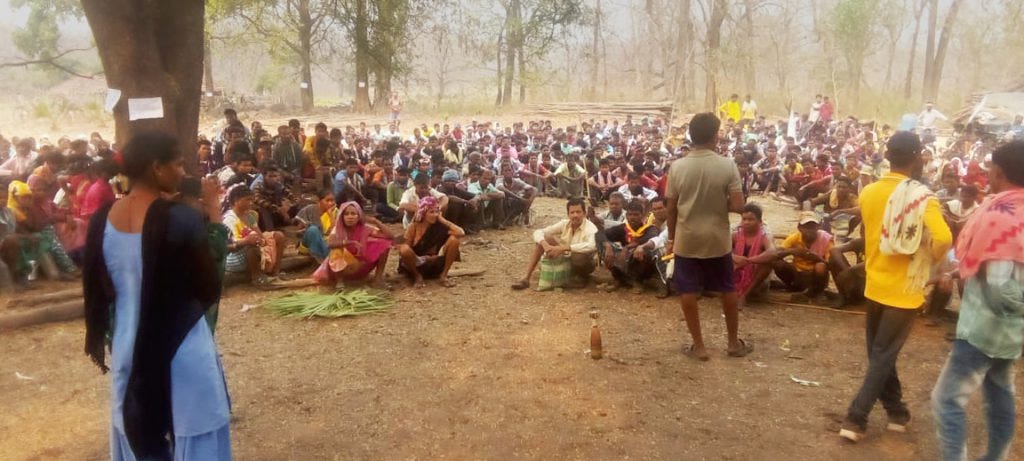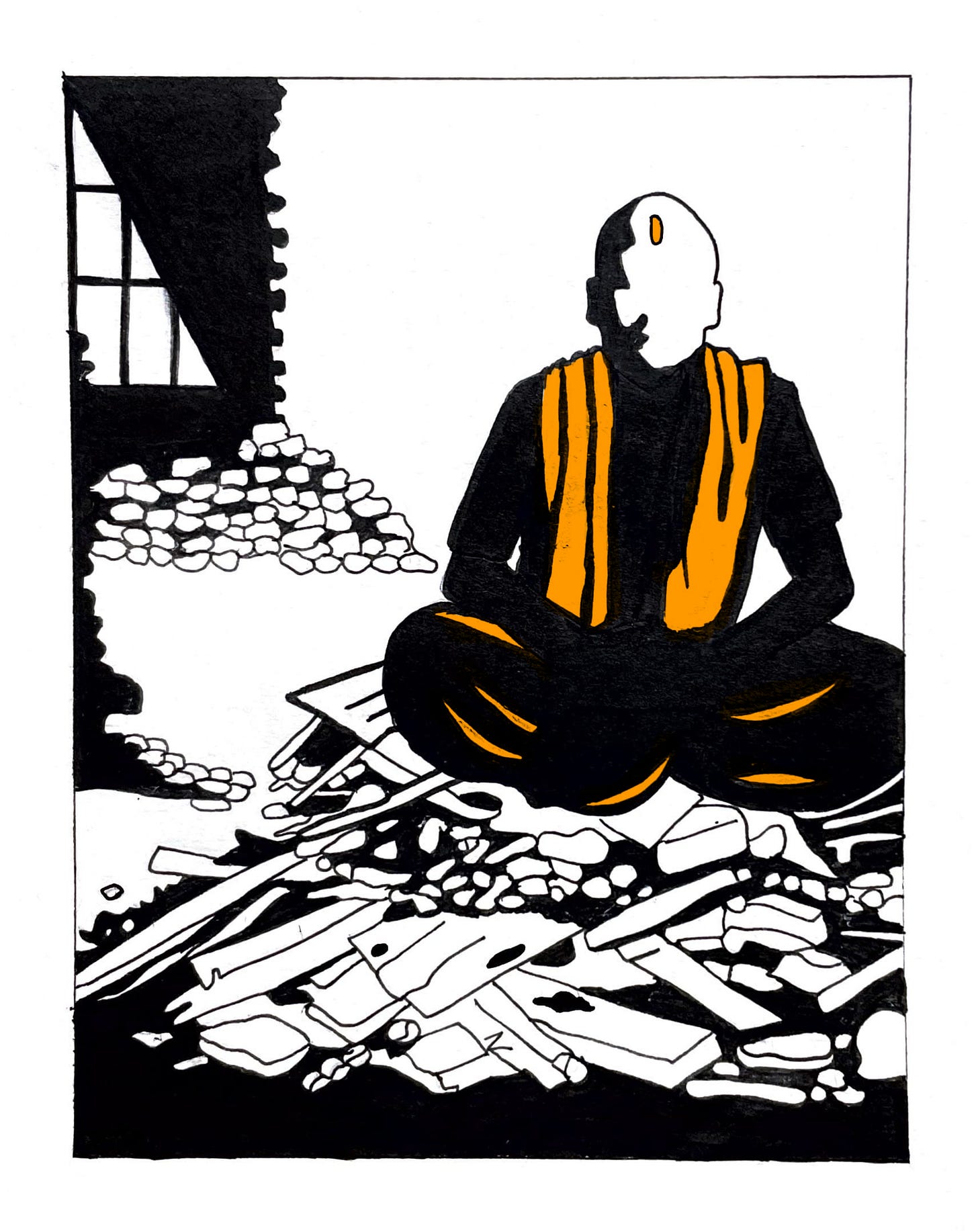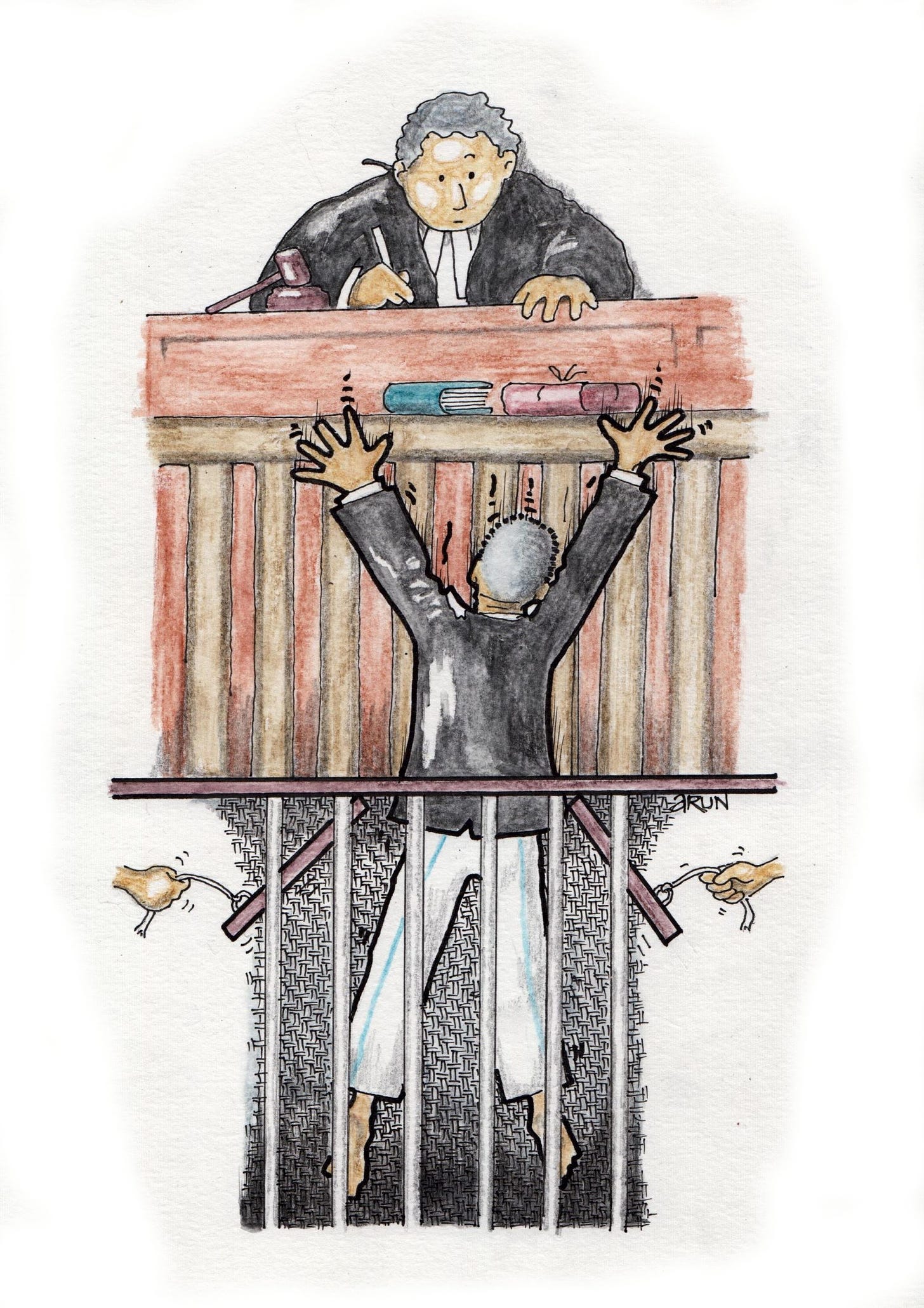The Polis Project Monthly
Thoughts from our political editor on the discomforting sense of patriotism amid the Olympics, and updates on the research from the Disappearance and Demolitions Projects and the BK-16 Prison Diaries
Hello hello! I feel obliged to start this month’s newsletter with a confession. Despite the state of contemporary Indian politics, the labelling and vilification of so-called anti-nationals, and the weaponisation of muscular nationalism, I cannot help but feel a strange, discomforting sense of patriotic urge to support Indian athletes at the Olympics. In sports that I would otherwise rarely think about, if at all, including those that I have never seen before, I watch and root for the Indians to win.
Ankita Bhakat and Dhiraj Bommadevera came agonisingly close to winning India’s first archery medal; PR Sreejesh’s unbelievable reflexes at goal led India to a podium opportunity in hockey; Lakshya Sen with his incredible run at 22 is young enough to get his badminton medal next time, Manika Batra at 29 might not be part of the table tennis contingent in Los Angeles 2028, but she made her mark as the first Indian to reach the round of 16 and led the women’s team into the quarterfinals. And of course, we all now know of Manu Bhaker, who became India’s first athlete to win two medals, and just one spot away from a shooting hat-trick. These are names and sports that I watched simply because Indians are participating. Except golf, fuck golf.
While researching for this newsletter, in a failed effort to justify this sudden, incongruous enthusiasm for India’s sporting achievements, I read many papers and opinions that made a case against international sporting competitions and their underlying nationalist sentiments. And I am not going to try and make a case for it—not here in this newsletter, anyway. Although, it is worth noting that the Olympics for India is not—at least so far—marked by the hyper visible, ugly jingoism on show during the cricket world cup last year, such as the incident involving Indians harassing a Bangladeshi fan and tearing his beloved tiger mascot.
More importantly, though, there is a joy in watching the pursuit of athletic excellence that is the Olympics. And when you’re from one of those countries, like India, that celebrates single-digit tallies at the end of the 17 days of 32 sports contested by over 10,000 athletes, every competition feels like one where you’re rooting for the underdog, so every victory feels significant. The Olympics, more than any other sporting event, also feels like it is first and foremost for the athletes. There is a mutual respect and recognition of each other’s skills, speed, and strength that underlies all victories and defeats.
Undoubtedly, the games cannot be divorced from culture and politics. The Algerian boxer Imane Khelif has been subjected to a campaign of harassment and bullying despite bringing her country its first medal in the Olympics. The International Olympic Committee refused to ban Israel despite a long history of sanctions on other countries for their political policies and actions, which includes Russia and Belarus this year, leading to athletes protesting by refusing to compete against Israelis.
But we can watch with awe as Khelif fights her final two rounds, as Cindy Ngamba becomes the first medal holder from the Refugee team, and appreciate the difficulty of the decisions made by athletes who forfeit in protest despite years of training. On August 6, Vinesh Phogat started her third Olympics run, after a tumultuous year leading up to Paris, at the helm of a seemingly impossible battle for justice against Brij Bhushan Singh, the former chief of India’s wrestling federation who stands accused of sexual assault by numerous women. Brij Bhushan’s son, Karan, won the Lok Sabha polls from his father’s seat of Kairana earlier this year. Karan was also unanimously elected the president of the Uttar Pradesh Wrestling Association, another post formerly held by his father, and Brij Bhushan also maintained control over the Wrestling Federation of India, after his loyalists won 13 of 15 posts in the body during elections last December.
In politics, Phogat, Sakshi Malik, Bajrang Punia and India’s other wrestlers have found it tough to prove a match against the clout of Brij Bhushan. At the Olympics, too, Phogat had her work cut out for her—but this game isn’t rigged. She had to be the best at what she does, and she’s shown that she can be time and time again. Phogat began her pursuit of athletic excellence as a young girl, she is the first Indian female wrestler to win gold medals at the Asian Games and the Commonwealth Games. She started her third Olympic run by defeating the top-seed, four-time world champion Yui Susaki. She became the first Indian female wrestler to reach the finals at the Summer Games, only to end in a heartbreaking disqualification for being 100 gram over the weight limit in her category. The Olympics scripts stories for the ages, and Phogat’s was as exceptional as it was painful.
The discomfort of that patriotic urge becomes easier to accept—or ignore—when it’s tied to rooting for Phogat, and all the sportspersons who worked tirelessly for these games. It becomes an opportunity to participate in their stories, and in their pursuit of excellence.
Except golf, fuck golf.
Coming back to business, this month we are very excited to bring you the long form that we were not able to publish last month. It is a months-long investigation that is finally near conclusion, and unfortunately, we must err on the side of caution and not reveal further details just yet. But it’s the sort of story that cannot be rushed, and our reporter is working tirelessly to confirm all the details. More on that soon! The Disappearance and Demolitions projects also have new exciting pieces lined up, with both projects exploring new stories and formats. And finally, we also look forward to publishing the last of our BK-16 Prison Diaries this month.
That’s all for now, so thank you for reading, do support us if you can, and until next month.
Arshu John
Political Editor
Disappearances
In the Disappearance project, Aabha Muralidharan will document the state practice of disappearances. Last month, we published our report on the indiscriminate destruction of Bastar forests with repeated aerial bombing. This month, we will look at the disappearances caused by the heatwaves in India, apart from looking at other state-enforced disappearances of land, bodies and mind. Sign up for Aabha’s monthly newsletter here for updates and discussions from her research!
Villagers discuss the aerial bombing that occurred in Bastar’s Bijapur and Sukma districts on 7 April 2024. PHOTO COURTESY MOOLVASI BACHAO MANCH.
Demolitions
In the Demolitions project, our research will delve into important issues surrounding demolitions in India, including housing rights, impact on communities, legal frameworks, displacement and development, and the broader socio-political contexts that lead to it. Last month, we published a primer on extrajudicial demolitions, define its scope for the project and to understand the impunity behind such state violence. This month, we are excited to publish our first profile of one of the houses, studying the demolitions through an ethnographic lens by looking at the lives and histories associated to these properties. Through this research, we hope to amplify the voices of affected communities and advocate meaningful interventions. Sign up for a monthly Demolitions newsletter here!
BK:16 Prison Diaries
Last month, we continued publishing the BK-16 Prison Diaries series, which we launched in June to mark six years of the arbitrary arrests and imprisonment of political dissidents in the Bhima Koregaon case. As part of the series, The Polis Project is publishing writings by the BK-16, and their families, friends and partners, and in July, we were grateful to be able to bring out a powerful essay by Minal Gadling on the state’s persecution of Surendra, as well as moving testimonies by the parents of Ramesh Gaichor and Sagar Gorke. We will be continuing the important series this month with more compelling testimonies from the BK-16 and their loved ones. Each piece in the series is also complemented by Ferreira’s striking and evocative artwork.






